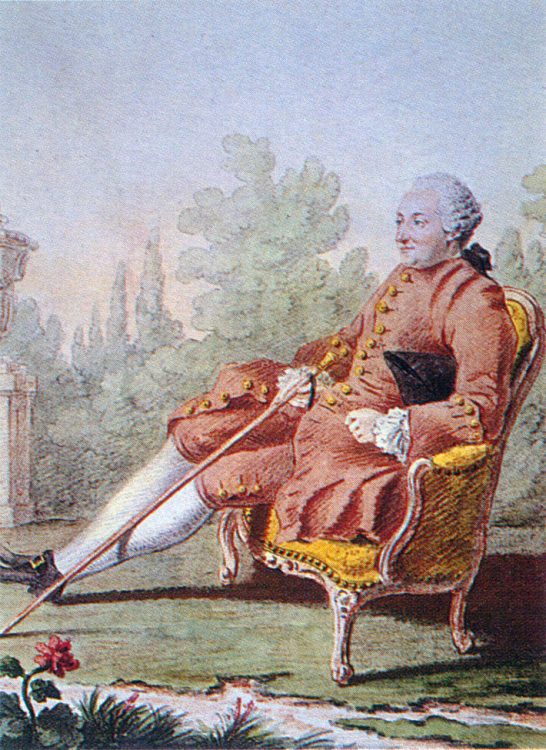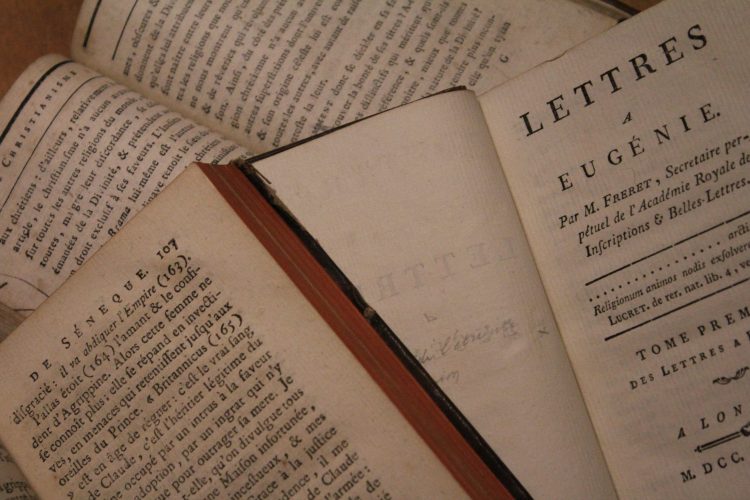Reconstructing d’Holbach
28 Apr 2021|
- Research

Paul-Henri Thiry, Baron d’Holbach (Edesheim, 1723 – Paris, 1789) was among the most prominent figures of the French Radical Enlightenment, a cultural movement that is widely believed to have fed into the French Revolution and to have been influential in the gestation of our modern notions of democracy and civil rights. D’Holbach’s writings put forward a thorough-going materialistic and deterministic philosophy; they are inspired by a profound dislike of superstition and religious belief, and are animated by a strong desire to enlighten the common people, free them from oppression, and set them on a path towards independence and happiness. Nothing on the eighteenth-century French scene comes quite as close to the definition of Enlightenment that Kant provides in his famous “Was ist Aufklärung?”.
Our understanding of d’Holbach, however, remains very fragmentary. While the Baron was a well-known salon host and stood at the centre of an extensive cultural network including such diverse thinkers as Adam Smith, David Hume, Cesare Beccaria, and Jean-Jacques Rousseau, we still lack a complete picture of how he fitted within the broader context of the European Enlightenment, what sources he drew on as a writer, and what impact he had on the contemporary cultural scene. Most importantly, we know surprisingly little about d’Holbach’s works, about how and when they were written, how they relate to one another, and how they evolved over time (if at all). D’Holbach, moreover, was in the habit of publishing his works either anonymously or pseudonymously, he worked in close collaboration with other French philosophers (most notably Denis Diderot and Jacques-André Naigeon), and was in the habit of interpolating in his works chunks of texts pillaged from clandestine manuscripts. As a consequence, the contours of his textual corpus are indistinct. In his fundamental Bibliographie descriptive des imprimés du baron d’Holbach, published in 1971 but recently updated, Jeroom Vercruysse attributes to the Baron no fewer than 67 works, ranging from lengthy treatises on ethics, politics, and metaphysics to mock-dictionaries of theological jargon, from (editions of) clandestine anti-religious texts to short pamphlets on opera, from French translations of German essays on metallurgy, chemistry, and mining to commentaries on the Holy Scriptures (Fig 2: Eighteenth-century editions of some of d’Holbach’s texts). Many of these attributions, however, are controversial, and various other texts in addition to those included in Vercruysse’s Bibliographie may in fact be attributed to d’Holbach. There is, then, the issue of collaborative works: the Baron is known to have contributed to the Encyclopédie as well as to Guillaume Thomas Raynal’s Histoire des deux Indes, an important history of European colonialism, and evidence suggests that he may have also read Marie-Jeanne Riccoboni’s novels before publication. And yet, gauging exactly the extent of his contributions is difficult.

As a Leverhulme Early Career Fellow, I am currently directing a project – Digital d’Holbach – to create the first ever scholarly edition of d’Holbach’s complete works. Digital d’Holbach, which is importantly part of a larger-scale project – Digital Enlightenment – directed by Professor Nicholas Cronk and based at the Voltaire Foundation, brings together scholars in the UK as well as in Europe, and hopes to grow quickly with the support of the many colleagues worldwide who share our interest in the works of the Baron. When accomplished, the edition will represent a major contribution to the field of eighteenth-century studies: not only will it help to establish the contours of d’Holbach’s textual corpus more precisely; not only will it help to pin down rewriting and plagiarism, to identify the authors with whom d’Holbach collaborated, and to get a better sense of how the works within his corpus relate to one another. It will also offer a more nuanced idea of the ‘Radical Enlightenment’ as a whole, and help scholars to gain a much better understanding of some of the main (philosophical) debates taking place in the second half of the eighteenth century not only in France, but in the whole of Europe.
Category: Research